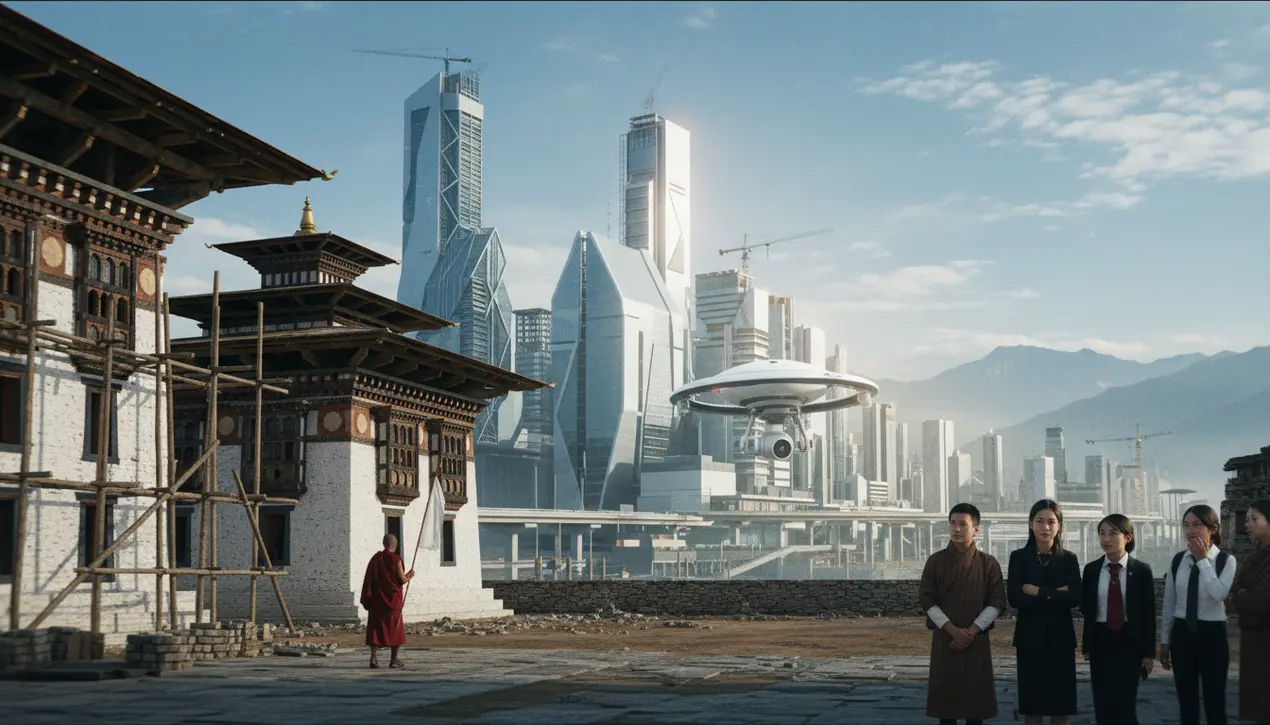
Politicsgovernments & cabinetsPolicy Agendas
Bhutan Plans Singapore-Inspired City to Lure Youth Back
AN
Andrew Blake
4 hours ago7 min read3 comments
Bhutan, that mystical Himalayan kingdom long celebrated for its unique philosophy of Gross National Happiness, is embarking on a radical experiment that feels ripped from a different world entirely. Faced with a sobering reality of high youth unemployment and a concerning brain drain—particularly to Australia, which has become a magnet for its young, educated citizens—the nation of under 800,000 is proposing a startling solution: a Singapore-inspired city.This isn't just about urban planning; it's a profound cultural and economic pivot for a country that has deliberately prioritized spiritual well-being over rampant GDP growth, a nation that is not only carbon negative but was also famously reluctant to adopt democracy, doing so only when its beloved monarch insisted during a period of peace. The proposed 'one country, two systems' special administrative zone represents a fundamental bet on the future, an attempt to create a high-tech, business-friendly hub within its borders to lure its dispersed talent back home and stem the exodus.The context here is critical. For decades, Bhutan has stood as a global anomaly, a bastion of tradition cautiously navigating modernity.Its youth, however, increasingly connected to the outside world through digital means, are seeking opportunities that the traditional, agrarian-based economy simply cannot provide at scale. The tension is palpable: how does a nation preserve its soul—its deep Buddhist values and pristine environment—while also offering its next generation a viable future? This new city concept is the government's ambitious answer, a calculated gamble to inject economic dynamism without, in theory, sacrificing the core principles that define the nation.Looking at historical precedents, the model of using special economic zones to catalyze development is not new, from China's Shenzhen to Dubai's meteoric rise. Yet, applying this framework to Bhutan is unprecedented.The challenges are monumental. Can Bhutanese authorities replicate Singapore's legendary efficiency and regulatory clarity? What safeguards will be put in place to prevent environmental degradation in a country that is a global leader in conservation? And perhaps most intriguingly, how will the predominantly rural population react to the creation of what could essentially be a state-within-a-state, operating under a different set of rules? Expert commentary would likely be divided; some development economists might hail it as a necessary, bold leap into the 21st century, while sociologists and cultural preservationists would warn of the risks of cultural dilution and creating a two-tiered society.The possible consequences ripple outwards. Success could see Bhutan stabilize its population, foster a new generation of homegrown entrepreneurs, and create a novel template for sustainable development that other small nations might emulate.Failure, however, could exacerbate existing inequalities, lead to contentious land disputes, and potentially undermine the very social fabric that makes Bhutan unique. This is more than a real estate project; it's a national identity crisis playing out in concrete and policy, a fascinating case study of a nation trying to write its next chapter without erasing the first.
#Bhutan
#youth unemployment
#talent exodus
#economic development
#mindfulness city
#Singapore
#featured
Stay Informed. Act Smarter.
Get weekly highlights, major headlines, and expert insights — then put your knowledge to work in our live prediction markets.
Comments
Loading comments...
© 2025 Outpoll Service LTD. All rights reserved.